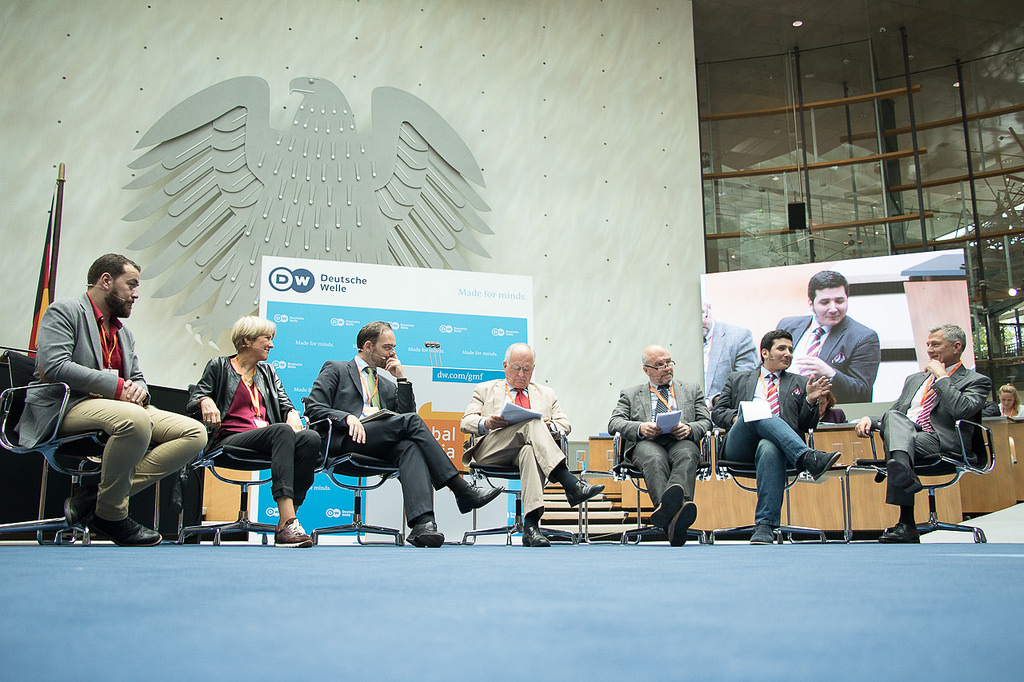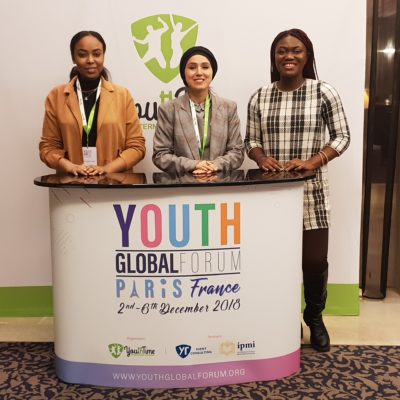By Anna Romandash
Photos by Timmy Hung-Ming Shen
“The first victim of any conflict is truth. The biggest tool in war is weaponizing information,” says Wolfgang Ischinger, Munich Security Conference Chairman at the 2016 Deutsche Welle Global Media Forum. He adds that information war prevents people from acting on physical conflict, which has happened in Balkans, and now takes place in Ukraine.
The war in Donbas on Ukraine’s East is the most common example of describing information war. Most notably, it serves as an example of the battlefield pro-Kremlin media lead against Western journalists in reporting war events. According to Russia’s profile on Reporters Without Borders website, “While TV channels continue to inundate viewers with propaganda, the climate has become very oppressive for those who question the new patriotic and neo-conservative discourse, or just try to maintain quality journalism.»
Among the main propaganda channels are state-owned media, which present Kremlin’s perspective on international events. One of the most famous channels is Russia Today (RT), the state-owned media, which broadcasts news on Russia outside the country. It works with foreign audiences delivering news in English and other languages. RT has been referred to as propaganda outlet of the Russian government and is well-known for its manipulative news on Ukraine and the war in Donbas.
“Whenever I need to send one of my reporters to the warzone, I feel very sad; it feels like sending my children or grandchildren,” says Alexey Nikolov, the managing editor at RT. The channel is no stranger to covering war zones. In addition to its infamous work in Ukraine, it is also well known for its Syrian coverage.
In 2016, Russia has been ranked 148 out of 180 countries in Reporters Without Borders’ media freedom ranking. However, this is not the case with Nikolov. “I don’t agree this ranking is true. I think it is very biased, which makes its authority very low,” he says. According to him, the situation in Russia is better than it appears, especially in relation to propaganda and information.
Nikolov believes the accusations against RT are not justified. “When you are trying to present a different a voice, you are going to report many things no one reports,” he adds. According to the editor, RT has not received much criticism before it was popular, but the bigger audiences it got, the more criticism it got.
Secretary of State John Kerry referred to RT as “propaganda bullhorn” for its pro-Kremlin coverage.Nikolov, too, has a simple explanation to this, “If you don’t like something, you call it propaganda. That’s why I brought you (the forum participants – AR) a propaganda bull horn.”
RT has had rough times for its controversial coverage; one of its reporters quit the media for its manipulative articles of MH17 crash, and the medium it was included in the list named “Russia’s top 100 lies about Ukraine” made by a fact-checking website StopFake. Aside from criticism by media experts and officials, the media has also been involved in Yukos shareholders case, an international case against the Russian government on the charges from a multibillion-dollar Yukos oil company.
How does one deal with a media giant like RT and its propagandist news then? Well, the solution is simple, at least for Ischinger, “We should triple the amount of scholarships for Russian academics and journalists, and end visa restrictions for average Russians. If they could spend time here, they would lose their hatred. We need to create more people-to-people exchange.”
This suggestion sounds interesting enough, taking into consideration the political system in Russia and the fact that both the EU and Russia imposed mutual sanctions against each other, not to mention the fact that EU citizens need Russian visas, too. The sanctions are the result of Russian involvement in the war in Donbas, which lasts from 2014 without an effective solution. The war, which started in Ukraine’s East as a separatist act led by pro-Russian activists, was fueled with the support of Russian army. It received a lot of coverage both on Russian and Western sides. Unlike their Western colleagues, pro-Kremlin media do not see Russian involvement in the war despite the factual evidence and criticism in the biased coverage.
The fact that Novikov joined DW Global Media Forum to speak on media standards is also interesting enough. Apparently, his talk could be an interesting discussion if he was asked questions on reporting in Donbas. Too bad, he was not. The plenary discussion, in which Novikov participated, did not lead to any serious questions regarding professionalism in the media he leads. Could it be a special strategy to attack RT with love, so it changes its mind and works professionally?
If so, the strategy did not seem effective, at least, Novikov did not show any signs of change. “We all make mistakes,” he says. Of course, we do.





